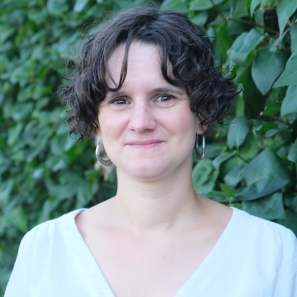The EDRi network adopts its 2025-2030 Strategy
The EDRi network adopted its 2025-2030 strategy at the General Assembly in Paris in May 2025. In this blogpost, EDRi’s Executive Director, Claire Fernandez, lays out the year-long journey and the work on many people it took to get us to this important milestone, and some highlights from our objectives and approach moving forward.
It’s the journey
At the General Assembly (GA) in Paris in May 2025, EDRi members adopted the EDRi 2025-2030 Strategy. This marked an important milestone in the strategic planning cycle of the network, and followed a year-long process.
The strategy adoption is just the start of the collective implementation of our plans. Yet this step marks the end of an important phase of consultations, research and co-drafting.
The Strategy version adopted at the GA is the result of a collaborative process reflecting many voices from the EDRi network and beyond. Both member organisations and the Brussels Office staff provided key inputs for its development. The plans built on the results of primary and secondary research, which included reviewing more than 30 external reports, conducting 45 interviews, analysing results of two questionnaires, and holding several workshops. We gathered feedback from EDRi members over five months, with four consecutive rounds of feedback punctuated by bilateral meetings, deep dives and drop-in sessions. In total, 75% of EDRi members and affiliates provided feedback during the drafting process.
We are proud to share the result: EDRi members voted to reaffirm the common outlook and the shared goals of the EDRi network for the next five years. The strategy provides a direction of travel, shared values, a vision for change, as well as a large overview of the tactics and priorities we’ll employ to achieve change.
Planning in uncertain times
What’s been clear in the last few months as we planned for the future is the ever changing landscape and the difficulty to anticipate everything in uncertain times. We conducted a detailed analysis of the current context and anticipated trends, as well as how these square up with EDRi’s strengths and weaknesses as a network. The strategy also captures EDRi’s theory of change: our interventions are designed to address the complexity of systemic change – addressing the root cause of social problems – to be responsive to the to the ever-evolving ecosystem in which we find ourselves: other actors, civil society organisations, decision-makers, activists At local, national, European and global levels.
EDRi’s Monitoring Evaluation and Leaning processes also enable us to re-assess our plans and adjust to a changing environment.
For the first time in our strategy-making process, we also plotted plausible future scenarios. These scenarios are a reference points to compare against, as we analyse unexpected future developments. These speculative exercises of how the future might unfold do not replace the ideal scenario EDRi articulates for advocacy and what we want our world to look like, but elaborate on possible developments over the next five years to enhance EDRi’s preparedness to adapt.
This strategy will be the north star guiding our work, a recurring point on the agendas of future GAs as we meet with our community, and will be evaluated half-way through its 5 year term.
So, what’s the plan?
At this critical moment – with geo-political tensions, attacks on recent regulations on technology and AI, democratic backsliding, securitisation of public policies and narratives and increasing crack-downs on civil society – EDRi will continue to hold the line to protect and promote digital rights. We will continue demanding a commitment from decision-makers to public accountability when regulating technologies and their social, economic and environmental applications and consequences.
Three of our strategic objectives are therefore focused on resisting the EU deregulation agenda, and working to protect the digital human rights acquis in the upcoming EU mandate.
We will work to:
1. Resist surveillance and control agendas, narratives and initiatives to build a caring and rights-protective conception of safety
2. Strengthen the conditions for democratic accountability, expression and participation
3. Counter the digital giants’ dominance and grip on our economy, infrastructure and planet, and promote public interest alternatives.
Holding the line also means we will be working on awareness raising, capacity building of EDRi members, partners and the broader civil society movements, support for members, solidarity with other civil society organisations, and other forms of community resilience to resist the rise of fascism and conflict.
Specifically, we have shaped a strategic objective to reflect the lens we use to view technology and its impact, and the contribution EDRi makes to broader systemic change for safe and just spaces in Europe and beyond. Decolonial principles are among the multiple perspectives we employ to understand challenges posed to digital rights and how to address them. Our work is also informed by and contributes to racial, environmental and social justice.
While EDRi is, and will remain a European network, we have articulated a vision for how we connect with and amplify peripheral and Global Majority movements, and exchange learnings with other regions.
What’s next?
The EDRi office and EDRi members will use the startegy as a compass to guide our work and design our implementation plans over the next years. Stay tuned – we will report on our progress, obstacles,and adjustments.


